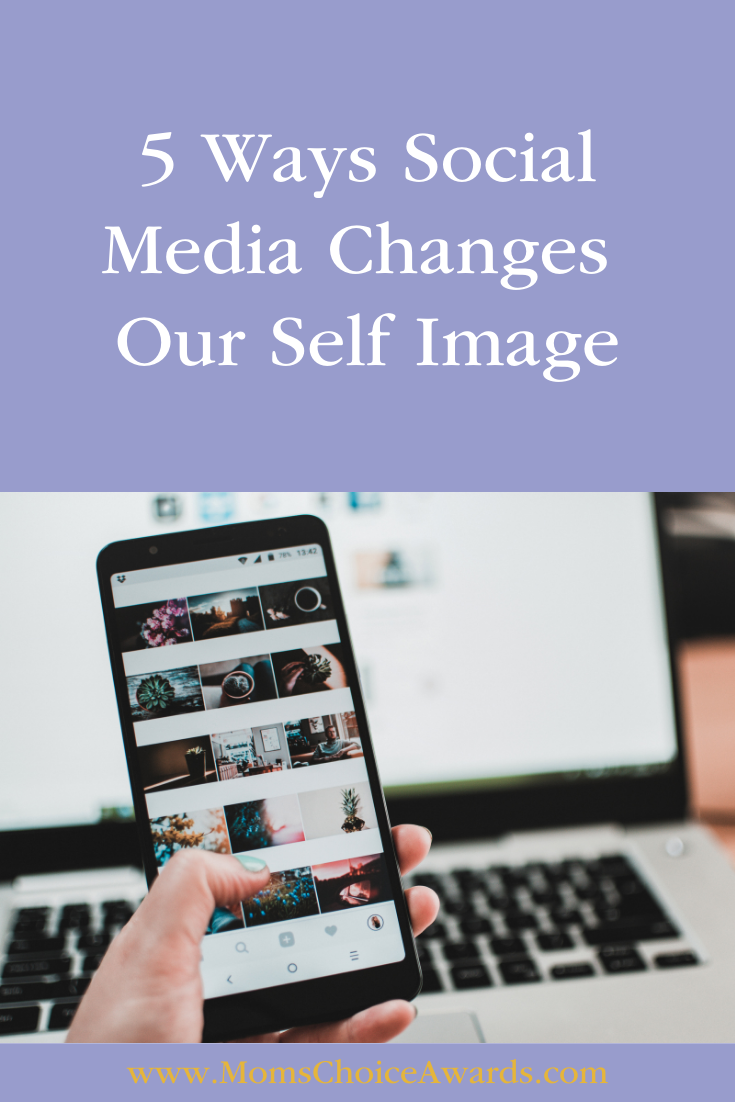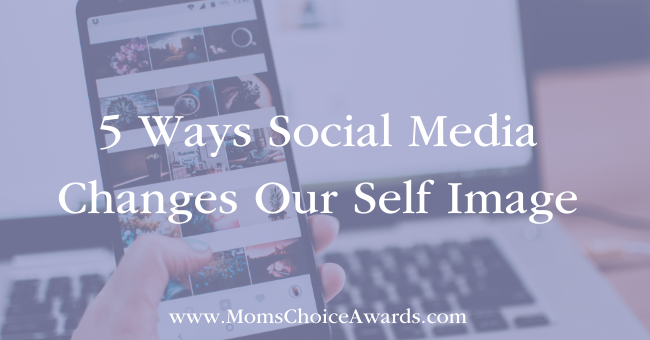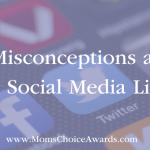 Draven Jackson
Draven Jackson
Blogger | Teacher
Twitter
Social media is a beautiful innovation with a lot of positive impacts. It allows you to stay in touch with people from all over the world – just last week, I was able to speak with my friends in Europe and Asia through social messaging apps! Social media also allows you to be a part of big life moments that you may not have seen otherwise, like births, graduations, and weddings. Plus, it’s just fun.
The way social media has allowed us to connect with so many different people from all over the world is an amazing achievement and has been especially beneficial during the pandemic, where so often we found ourselves secluded and separated from the people we love.
However, it’s important if we’re to use social media responsibly that we understand the mental and emotional effects it can have on us. The negatives are especially true for new or younger users, who may not always be able to realize how social media is affecting their self-image. Here are some of the major ways social media can have a negative effect on our self-image.
It skews your physical perception of yourself
Social media is pretty – pretty pictures, pretty filters, pretty words, and pretty captions. And that’s great – it allows us to achieve the aesthetic and image we want to show the world. However, too often we forget that what we say on Facebook and Instagram isn’t always the whole picture. We try to emulate the pictures and poses of influencers and celebrities without recognizing that the “pretty” picture wasn’t captured in one take.
 Many of the most popular images aren’t “natural” – they’re a search for the best lighting, the best pose, the best background. Selena Gomez is beautiful, but she doesn’t just take out her phone, snap a picture, and call it a day. I’m sure she also has a sea of “nope, no, not that one”s stored in her phone.
Many of the most popular images aren’t “natural” – they’re a search for the best lighting, the best pose, the best background. Selena Gomez is beautiful, but she doesn’t just take out her phone, snap a picture, and call it a day. I’m sure she also has a sea of “nope, no, not that one”s stored in her phone.
Because there is so much planning involved in the pictures we post, it’s important that we truly remember that the person in the picture isn’t the real us. Yes, she’s beautiful and captured well, but the groggy, no-makeup, unbrushed hair we see in the mirror every morning is also the real us. And she’s also beautiful and deserves to be recognized as being real.
If we teach our children that the person in the picture is only one version of us and that it’s important to appreciate the less perfect pictures and the “natural” us as much as the us we post, we have a better chance of encouraging true confidence and self-esteem early on.
It prioritizes “likes” over self-love
I personally have a love-hate relationship with the “like” system of social media. For one thing, seeing your picture or post getting likes is a quick shot of confidence. You think “Wow, yes, this validates everything about me. Thank you for noticing me.”
But when you don’t get the likes – when a fun picture or a funny post doesn’t seem to be as well-received – your confidence plummets. You blame yourself for not being pretty enough, funny enough, worthy enough.
But honestly, getting likes is a game of timing and chance. Did you post during a high traffic hour? If so, you’ll get more likes. Did you post at 3 a.m. on a Sunday? Since there’s less traffic then, there are fewer likes, and your post gets swept up into the crowd.
The setup of the “like” system also further emphasizes the idea that you need external validation to be worthy. You don’t need someone to tell you you’re beautiful to feel pretty if you teach yourself early on that you are beautiful. Here’s another important lesson we should teach our young social media users: likes will always fluctuate, but self-love is consistent. If you tell yourself you’re enough – if you really truly take value in self-love over external validation – then the likes won’t matter quite as much anymore.
It sets incredibly unrealistic beauty standards
Like I said before, social media is about the pretty parts of life. It’s about the good lighting and the perfect makeup and the background that makes your outfit really pop. Pictures are staged and touched up and pushed through filters until they look perfect.
Real people don’t look like that all the time. You’re not always going to have that golden hour glow or the eyeliner that could slice paper or the perfect angle that slims down your waste and hides your belly pooch. But somehow, we tell ourselves that everyone else looks like that all the time and it’s just us that look imperfect.
But that’s not true. Even the most traditionally beautiful men and women took a series of photos searching for just the right angle. They tilted their face this way and that to hide their breakouts. The wind whipped their hair out of place, and they had to stop between shots to fix it.
No real person always looks like they do on Instagram or Facebook, and it’s incredibly necessary to teach ourselves and our children that it’s okay if we don’t all look “picture perfect.” It’s our difference that makes us interesting, from the scars we are too afraid to show to the way our eyes create wrinkles when we smile. It’s all beautiful and worthy and we can’t be afraid to show these imperfections.
It ignores the beauty in ugliness and failure
This brings me to my next point about the negatives of social media – it ignores the positive things we can learn from ugliness and failure. There is beauty in imperfections, and there are important lessons to be found in failure. But if all we ever see are perfect faces and perfect lives, how will we ever learn to appreciate our ugly and our imperfections.
Post that sweaty workout selfie (and not the doctored mirror picture) to show off how hard you worked during your workout. Take a picture of your ugliest laughing-until-you-cry face to show what your true happiness looks like. Show off your arm fat and belly pooch in your favorite bikini and show your daughter that you’re beautiful just the way you are.
You don’t have to be perfect to be worthy.
We spend more time online than we do living life
I know this is the biggest cliché of the modern age – the good ole “You young people spend too much time on your phone.” Unfortunately, for many, this is a hard truth. While the ability to connect with people anywhere, anytime, is an amazing modern innovation, sometimes we also forget to be present with the people we are physically with because we are so wrapped up in social media.
You may be wondering, “Okay, yeah, that’s true, but what does that have to do with my self-image?” And the answer is simple: because you aren’t taking the time to live your life and live in the moments, you forget to appreciate your life as it is. We get so obsessed with what other people are doing, why other people are so much happier than we are, that we forget to find happiness in our lives. We think people are doing better than we are, but they’re not. They’re struggling just as much. Like with pictures, nothing is ever as perfect as it is portrayed on social media.
It’s important that we stop tying ourselves and the image we have of our lives with the perception we have of other people’s lives. Nothing is ever completely as it seems, and it’s much more important that we actively live our lives than wish that we could live someone else’s social media life. Our perception of ourselves and our lives have to be created from reality, not the glittering gold of social media.
As social media continues to grow and more platforms begin to pop up, continue to enjoy the amazing things that come with the modern age. Have fun with Facebook’s improved features, or the new filters available on Snapchat. Teach your kids about all the wonderful things available to them that weren’t there 50 years ago. But also teach them about the importance of recognizing the real world from the internet’s skewed perception and show them that true self-love comes not from external validations or “likes”, but rather from inside themselves and recognizing the astounding beauty and wonderful imperfections inside themselves.
Do you know of more ways social media might change our self-image? Tell us in the comments!
 About Draven Jackson
About Draven Jackson
Draven is an avid writer and reader who enjoys sharing her opinions on movies, books, and music with the rest of the world. She will soon be working as a teacher in Japan and hopes to use her experience to connect with other teachers and students around the globe. Draven spends most of her time at home with her family, her dogs, and her ferret.
To see more, view all posts by Draven Jackson here.






4 Comments on “5 Ways Social Media Changes Our Self Image”
I see the impacts on my daughter!
Totally agree, I see the impacts on my daughter, she’s always on social media and I see that it has an immense effect on her self-esteem
This is so true, social media indeed has such a detrimental effect on our self-image and realistic perception. I hope honesty and no retouching will become a new trend to fight it
So very true. It is hard being younger and seeing how the internet is affecting younger generations and how they see themselves. Also what they post to seem acceptable.